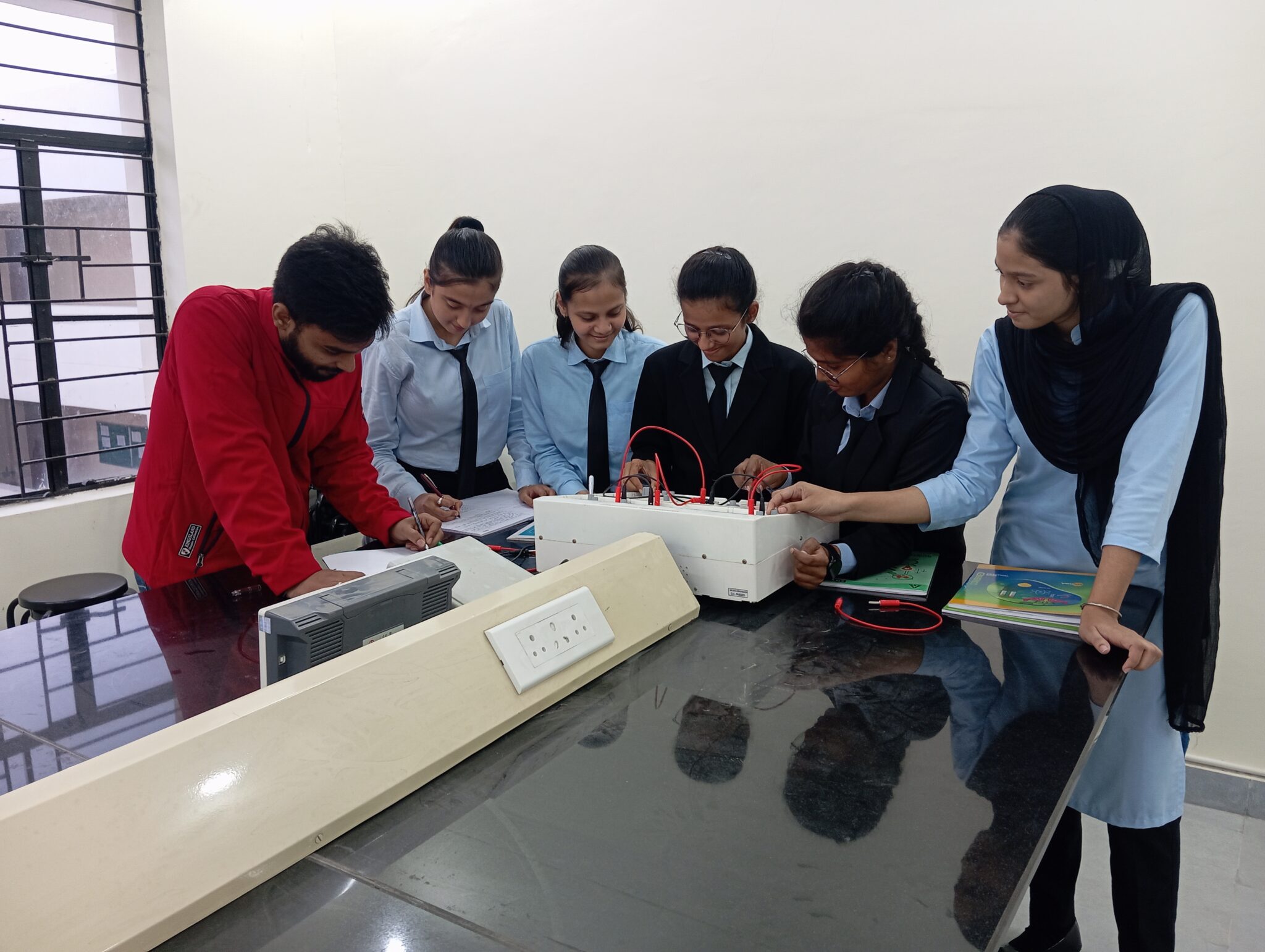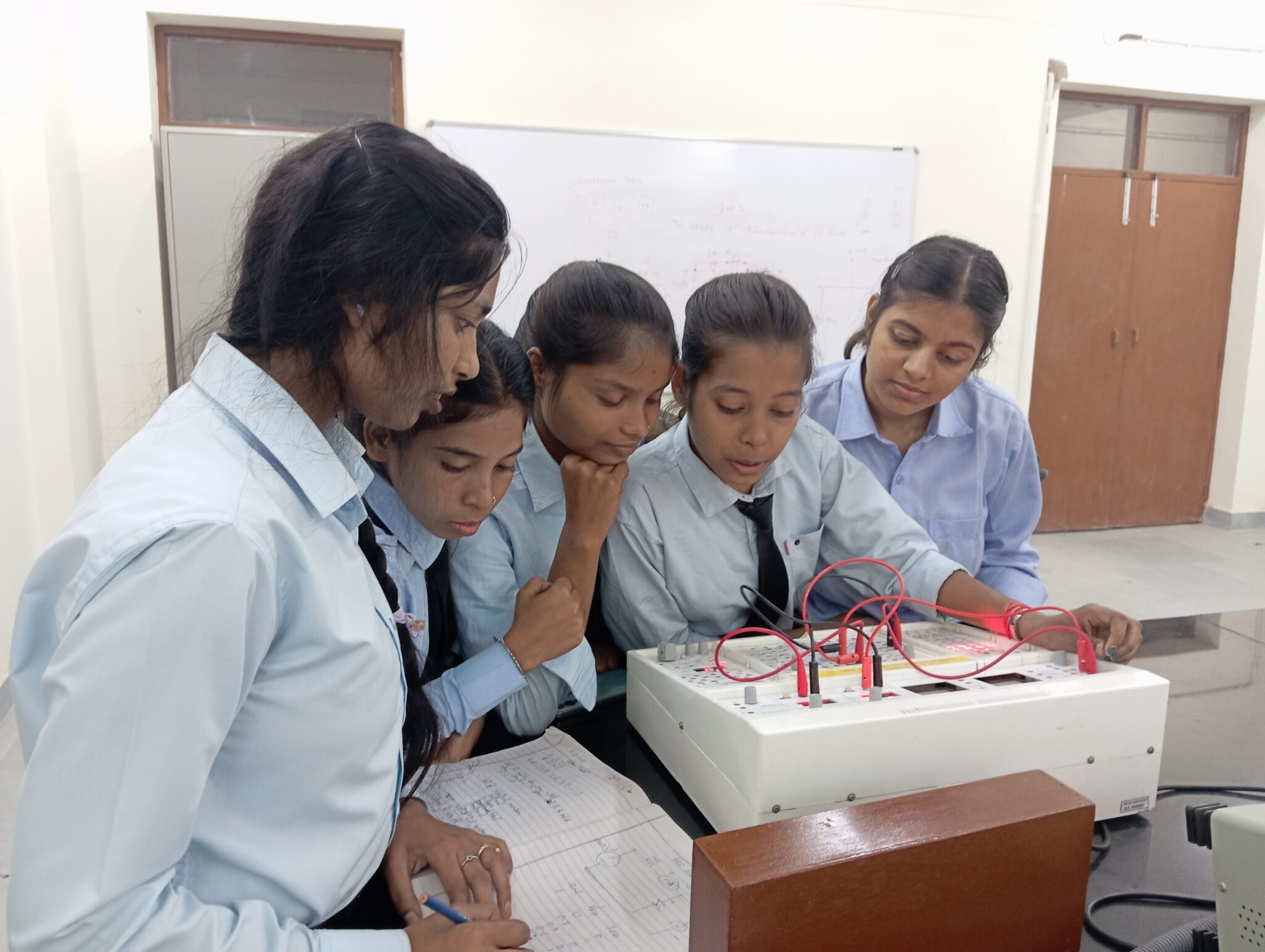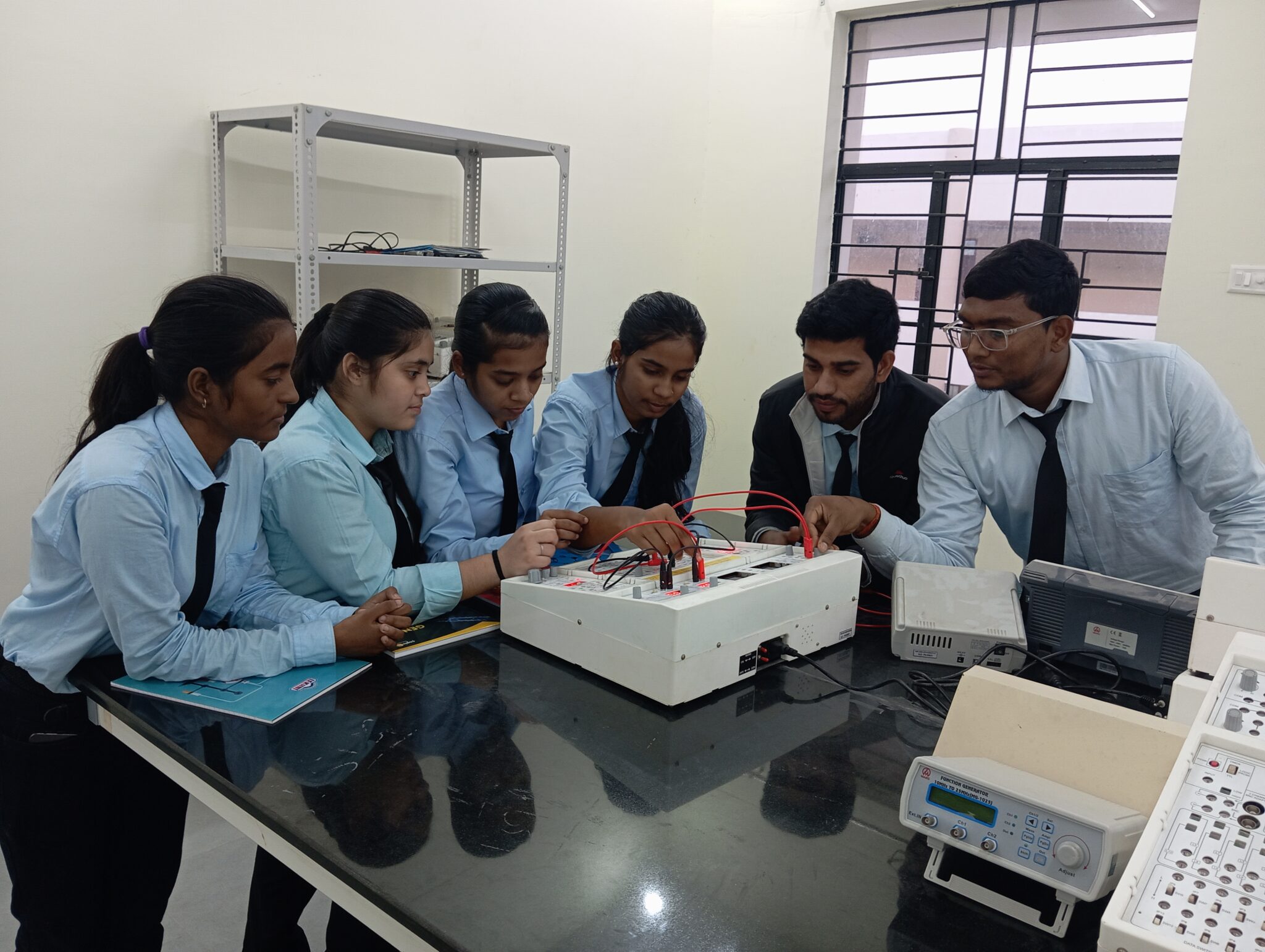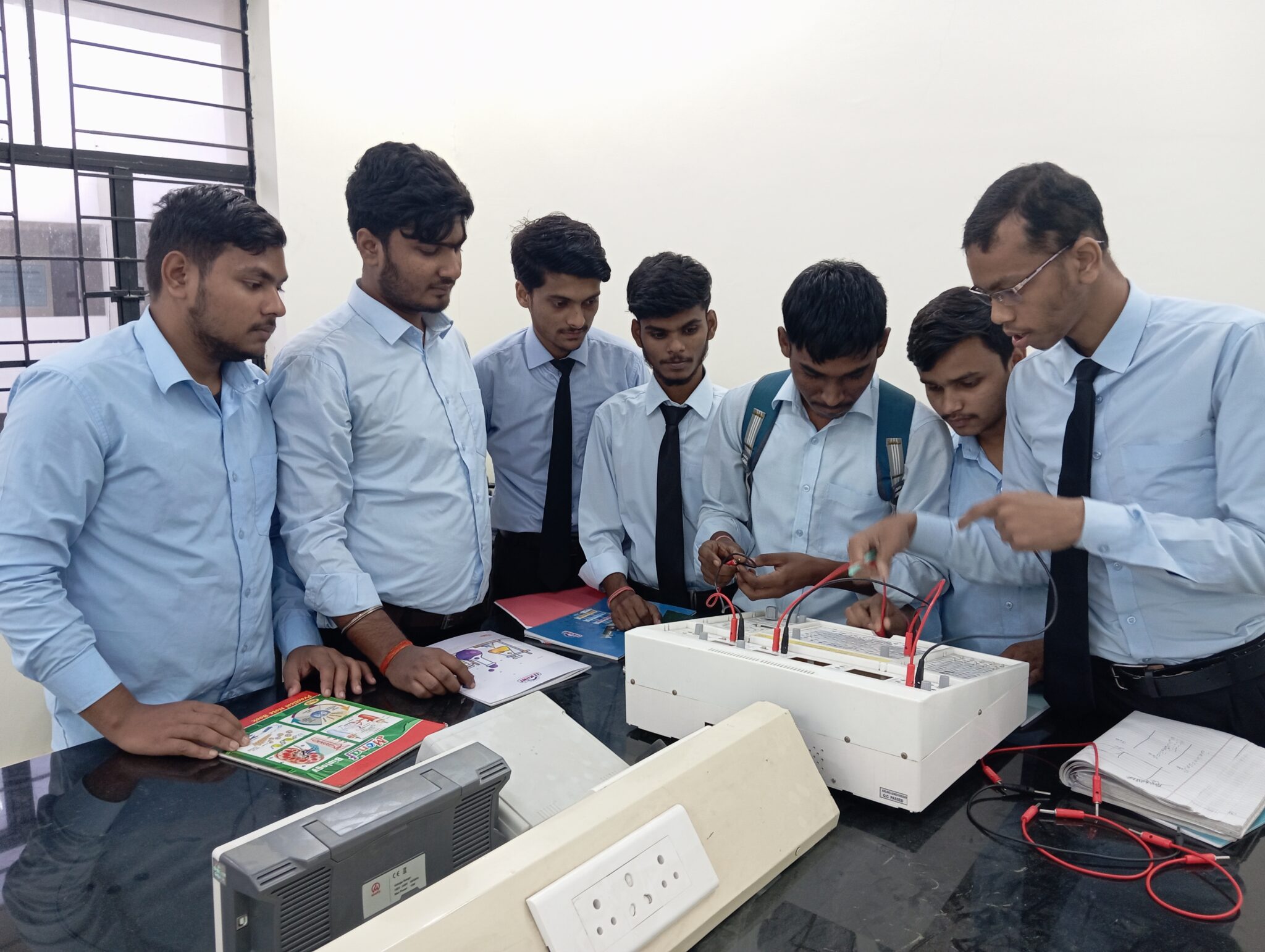Basic Electronics Engineering
Welcome to the Basic Electronics Engineering Laboratory !
Our Basic Electronics Laboratory is a state-of-the-art facility designed to provide hands-on experience in the fundamentals of electronics. Whether you are a student, an engineer, or a hobbyist, our lab is equipped with everything you need to explore the fascinating world of electronic circuits and devices.
Prof. In-Charge
Mr. Ram Kumar
Assistant Professor
Department of Electrical Engineering
Laboratory Infrastructure
- Comprehensive Equipment
- Multimeters: Measure voltage, current, and resistance with precision.
- Oscilloscopes: Visualize signal waveforms and analyze AC and digital signals.
- Function Generators: Produce various waveforms for testing circuit responses.
- Power Supplies: Adjustable DC power sources for a wide range of circuit applications.
- Breadboards: Create temporary circuit prototypes with ease, without the need for soldering.
- Soldering Stations: For those looking to make their circuits permanent, our lab offers professional soldering equipment.
- Wide Range of Components
- From resistors and capacitors to diodes, transistors, and integrated circuits (ICs), our lab is stocked with the essential building blocks for electronics.
- You can also explore more advanced components such as sensors, microcontrollers (like Arduino), and LEDs for project development.
- Hands-on Learning
- Our lab is designed to provide a real-world learning experience. You’ll conduct experiments to verify principles like Ohm’s Law, build amplifiers using transistors, and experiment with digital circuits using logic gates.
- Explore analog and digital electronics, gain experience in circuit design, and even prototype your own devices.
- Prototyping and Testing
- Build, test, and troubleshoot your projects using modern prototyping tools.
- Test your circuits in a safe, controlled environment and bring your ideas to life through experimentation and iteration.
- Comprehensive Equipment
List of Experiments
- Study of Cathode Ray Oscilloscope (CRO) (a) Measurement of amplitude, time period and frequency of unknown continuous signals.
- Identification of active and passive component.
- Study the characteristics of P-N junction diode under (a) Forward bias, and (b) Reverse bias.
- Study of clipping circuits and clamping circuits.
- To recognize a half -wave rectifier and full-wave rectifier using sinusoidal voltage.
- Study of Full wave rectifier using Capacitor filter.
- To recognize voltage regulator using Zener diode.
- Study of the input and output characterization of common base (CB) bipolar junction transistor.
- Study the input and output characterization of common emitter (CE) bipolar junction transistor.
- Study the output and transfer characteristics of JFET (Junction field effect transistor)
- Study of operational amplifier as (i) Inverting (ii) Non-inverting amplifier.
- Study of operational amplifier as (i) Integrator (ii) Differentiator.
- Construction and veriϐication of all other gate (AND, OR, NOT, XOR) using only a) NOR gate b) only NAND gate.





